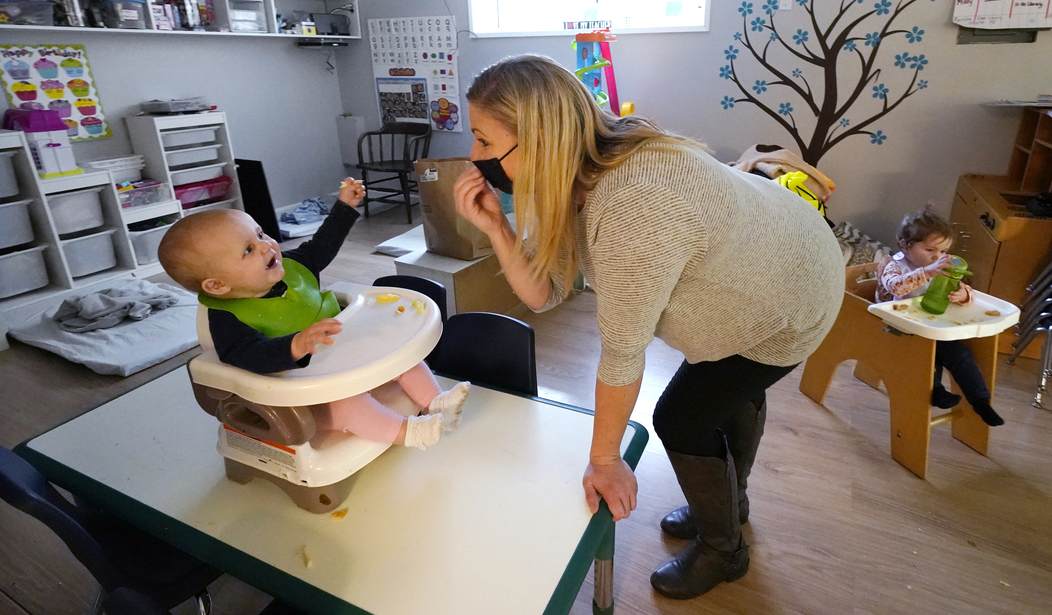The Supreme Court has overturned Roe v. Wade in a momentous victory for the pro-life crowd. But the battle is not over yet. In fact, in some ways, it has only just begun. Now that policy decisions are again in the states’ hands, the pro-abortion crowd no longer has the shielding of the federal government, meaning that they will be forced to participate in the overall debate more aggressively.
Pro-lifers need to be ready.
Not just to defend our positions but also to support mothers who need help and might be considering abortions, even if it means traveling outside their states. Indeed, mothers residing in states with stricter measures against abortion will require assistance and support.
This is where crisis pregnancy centers come in. These organizations have existed for decades to serve women who unexpectedly become pregnant and seek help. While pro-life groups like these do not have the name recognition of pro-abortion outfits like Planned Parenthood, they have a tremendous impact you will likely never hear about from the activist media.
A 2018 Pregnancy Center Study conducted by the Charlotte Lozier Institute found that these centers helped nearly two million people in 2017. Pro-life advocacy group Live Action reported:
The 2 million clients of pro-life pregnancy centers in 2017 received care that included free services with estimated savings to the communities of $161 million annually. Those free services included 679,600 pregnancy tests and 400,100 free ultrasounds by credentialed nurse sonographers and registered diagnostic medical sonographers. 100 mobile units offered ultrasounds in addition to brick and mortar facilities. Those ultrasounds likely helped many women and couples choose life for their children. According to the National Institute of Family and Life Advocates (NIFLA), 78 percent of women considering abortion choose life when they see an ultrasound of their babies.
Along with the other free services, these groups also offer baby gear, formula, clothing, car seats, and other resources to help mothers after they give birth. Moreover, “96 percent of the centers involved in the study offered material assistance free of charge and most in conjunction with education services. Parenting and prenatal classes were available at 87 percent of the pregnancy centers, with 300,000 parents taking part,” according to Live Action. Many of these centers also offer post-abortion support despite being pro-life; they provide counseling for those struggling with grief and regret after deciding to terminate their pregnancies.
As you might imagine, the pro-abortion crowd isn’t too fond of crisis pregnancy centers. Despite claiming to be pro-choice, they resent the idea that organizations exist that are there to persuade mothers to choose to keep their babies. Apparently, protecting Planned Parenthood’s revenue stream is more important than accepting mothers making a choice with which they disagree. This hatred has come out in full-on campaigns to discredit these organizations, accusing them of using deceptive means to talk women out of having abortions.
Leftists allege that all, or most, crisis pregnancy centers pose as abortion providers as a way to bait mothers into going into their offices where they can be convinced not to go through with the procedure. This might be true in some cases. However, organizations affiliated with networks are typically bound by an ethical code prohibiting such practices and are upfront about the purpose of their offices. But even so, if a center does engage in this activity, they are not forcing mothers to forego abortion procedures; they are free to leave if the office is not what they believed them to be.
After the Supreme Court’s draft opinion indicating that Roe v. Wade was about to be overturned was leaked to the public, some in the pro-abortion crowd resorted to violence and vandalism. They firebombed and vandalized pro-life organizations. Domestic terrorist groups like Jane’s Revenge cropped up, exhorting their followers to target buildings housing crisis pregnancy centers.
With Roe being relegated to the annals of history, the pro-life movement must continue fighting for life – we already see the pro-abortion crowd seeking ways to preserve their most unholy of sacraments. We need to have an answer, and crisis pregnancy centers, along with other groups that offer support to women, will be key. One of the most common arguments used by those who support abortion is that we only care about ensuring babies are born, but we are not concerned with what happens after.
Now that the federal government is not supreme when it comes to regulating abortion, there will be fewer women who go through with the procedure. They will need help, and we already know the left isn’t interested unless it involves dependency on the government. The Supreme Court’s ruling on Dobbs is a critical victory for the pro-life movement. But there is still work to be done when it comes to saving lives.














